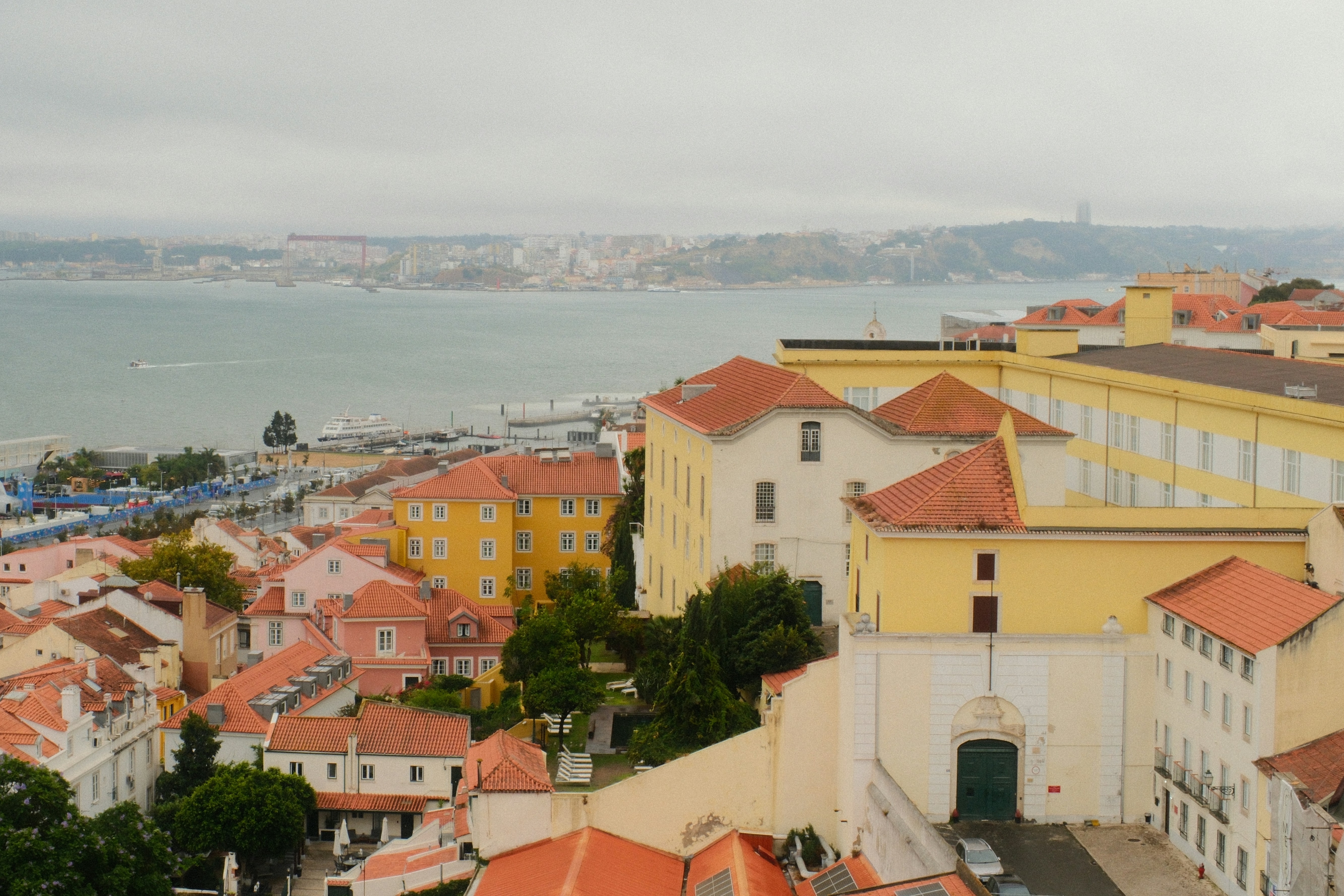
The Most Popular Neighborhoods for Expats in Lisbon and Porto
Where to live, stroll, and settle in Portugal: a lively guide to the neighborhoods expats love most in the country’s two main cities.
Moving to Portugal has become, in recent years, a true social phenomenon. Between quality of life, mild climate, and warm hospitality, more and more expats are choosing Lisbon or Porto as their new home. But beyond clichés and postcards, each neighborhood has its own personality, atmosphere, and secrets.
Let’s explore together the places most beloved by expats, where Portuguese authenticity meets modern comfort and a cosmopolitan spirit.
Lisbon: A City in Motion
Lisbon fascinates with its hills, its light, and its timeless charm. It’s a city of balance: neither too big nor too small, both old and modern. For an expat, it offers a rich and accessible urban experience.
But not all neighborhoods have the same energy. Some breathe history, others creativity. And each attracts a very specific type of resident.
Alfama: The Soul of Lisbon
It’s the oldest neighborhood, where narrow streets climb and descend between colorful façades and clothes hanging from windows.
Alfama enchants those who love authenticity and culture. You can still hear fado in the taverns, and cross paths with artists, families, and travelers.
Expats who choose Alfama are looking for a Portugal of emotions and traditions. The charm is undeniable, though modern comfort is sometimes limited. It’s a choice of the heart, for those who want to live Lisbon from the inside.
Príncipe Real: Elegance and Modernity
This elegant and leafy neighborhood has become one of the most sought-after by expats.
Close to the center, yet calmer than the neighboring Bairro Alto, Príncipe Real captivates with its restored old buildings, independent shops, trendy cafés, and bohemian atmosphere.
Foreign families appreciate its safety, playgrounds, and proximity to international schools.
It’s a neighborhood of balance: Lisbon in soul, but open to the world.
Cais do Sodré and Santos: Creative Lisbon
Between the Tagus River and the coastal train line, these two neighborhoods have undergone a spectacular transformation. Once working-class and port areas, they are now the heart of modern Lisbon.
Design cafés, coworking spaces, art galleries, and lively bars coexist side by side. Active expats, freelancers, designers, and entrepreneurs feel perfectly at home here.
Cais do Sodré offers a cosmopolitan and festive energy, while Santos maintains a more residential and artistic vibe.
This is Lisbon in motion — the Lisbon of new ideas and an international youth.
Parque das Nações: The Portugal of the Future
Far from the traditional image, Parque das Nações embodies modern Lisbon.
Built for the 1998 World Expo, the district offers contemporary buildings, wide green spaces, and a stunning view of the Tagus.
Here, everything is designed for comfort: bike lanes, a large shopping center, convenient transport, and a peaceful lifestyle.
Expats find a practical environment, ideal for families or professionals working in the international companies based nearby.
It’s a Portugal looking to the future — bright and well-organized.

Campo de Ourique: The Charm of Everyday Life
This residential neighborhood, both central and quiet, attracts many expats looking for an authentic Lisbon life without the tourist crowds.
There are markets, schools, good restaurants, and a real sense of community.
The streets are clean, residents know each other, and shops have a human scale.
Campo de Ourique is Lisbon as we love it: lively, simple, and elegant at the same time.
Porto: The North Full of Character
Three hundred kilometers to the north, Porto gives off a different energy. Rougher, more traditional, but equally charming.
The city attracts more and more expats for its human scale, authenticity, and lower rents compared to Lisbon.
Porto captivates with its balance between history, friendliness, and modernity. It’s a city where you quickly feel at home, especially if you value human connection and local life.
Foz do Douro: Elegance by the Sea
Located at the mouth of the Douro River, this is one of Porto’s most sought-after neighborhoods.
Between villas, beach cafés, and seaside promenades, Foz do Douro offers an idyllic setting.
Expats love its tranquility, its light, and its quality of life.
It’s the perfect place for those who work remotely or seek a balance between city and nature.
The charm of Foz lies in its rare blend of elegance and simplicity.
Boavista: Modernity and Urban Comfort
Boavista is the dynamic heart of contemporary Porto.
Wide avenues, modern offices, museums, hotels, and restaurants coexist harmoniously.
Expats find an active lifestyle here, spacious housing, and excellent connections to the rest of the city.
It’s a practical neighborhood, ideal for families and young professionals looking for a stable and well-located environment.
Baixa and Ribeira: The Living Postcard
This is historic Porto — cobbled streets and colorful façades overlooking the river.
Living here means diving into the city’s old-world charm while enjoying constant activity.
Expats who choose Baixa or Ribeira are seeking emotion above all: sunsets over the Douro, markets, terraces, and the friendliness of locals.
It’s a unique experience — sometimes noisy, but always magical.
Cedofeita: The Artistic Soul of Porto
This central neighborhood has become the refuge of creatives, students, and young entrepreneurs.
Galleries, vintage cafés, and local shops multiply throughout its streets.
Cedofeita attracts expats who love culture, shared spaces, and village-like atmospheres in the heart of the city.
It’s a neighborhood where life feels good — authentic, inspiring, and far from clichés.
Conclusion
Lisbon and Porto do not compete; they complement each other.
The first enchants with its light and modernity, the second with its warmth and depth.
Expats find happiness in both, depending on their rhythm and personality.
Lisbon shines, Porto soothes. One looks toward the Tagus, the other toward the Douro. And both share the same Portuguese art of living: simple, sincere, and turned toward others.
Share this article
Suggested articles

Cultural Differences Between France and Portugal in Everyday Life
France and Portugal share a long common history built on respect and friendship. But living between the two countries means discovering how much small habits, ways of speaking, or daily routines differ. These cultural nuances, sometimes amusing, sometimes surprising, reveal a lot about the character of both peoples. Between lifestyle, communication, cuisine, family, or work, this is a journey into the heart of the French-Portuguese differences that make this relationship so rich.

Buy or Rent in Portugal: Which Housing Choice?
Portugal continues to attract: mild climate, vibrant culture, sunny gastronomy, and a relaxed pace of life. But when the time comes to settle or invest, one big question arises: should you buy or rent? The choice of housing, often emotional, becomes here a truly strategic decision. This guide helps you understand the differences, weigh the advantages, and choose the solution that best suits your project.

Truly Integrating into Portugal: Understanding the Local Mentality
There are countries where you arrive, unpack your bags, learn three words of the language, and think, “I’m integrated.” Portugal isn’t that kind of country. Here, integration isn’t about ticking boxes. It’s a slow conquest, a story of listening, of observation, of small gestures, and above all, of humility.

The Cost of Living in Portugal in 2025: Between Reality and Myth
For years, Portugal had that image of a small sunny paradise, where life cost almost nothing, where you could live like a king on a modest salary, and where retirees from Northern Europe came to settle down to “enjoy life.”

Mistakes to avoid when moving to Portugal
It’s a common mistake: imagining that moving to Portugal means leaving all modern life’s problems behind. The country may be welcoming, stable and warm, but it’s still a European nation with its own challenges.

Living in Portugal without speaking Portuguese myth or reality
Portugal is one of those rare countries where you can arrive without feeling completely lost. Young people speak English fluently, waiters switch easily between several languages, and even in public offices there’s almost always someone ready to help in French or Spanish. It’s not a myth: the Portuguese have a real talent for languages and, above all, they never make you feel bad for not speaking theirs.


